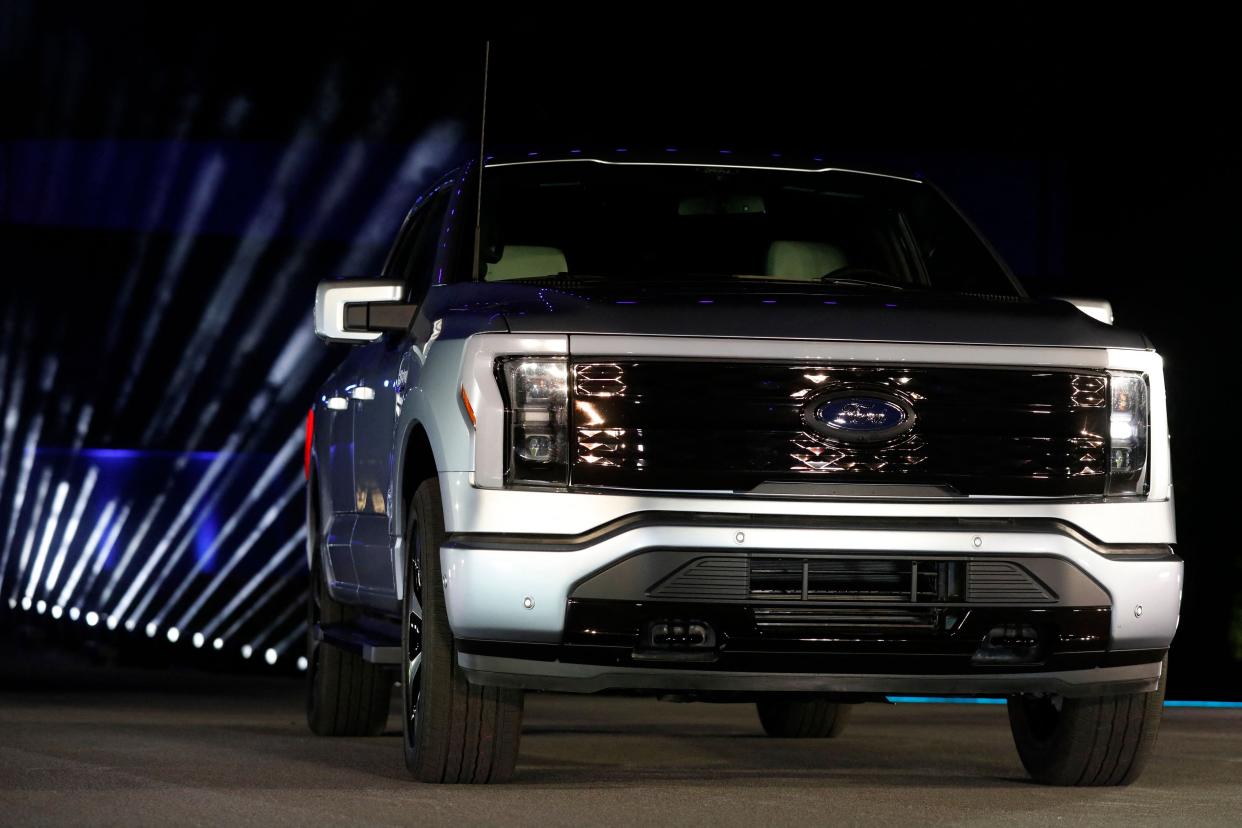Will unstable gas prices today be replaced by unstable mineral prices for batteries tomorrow?

As Americans hit the road over this summer, motorists have their eyes on the headlines and filling stations as gasoline prices reached beyond their typical summer peak. This year has been worse than usual, with both July 4 and Memorial Day gas at its most expensive since 2014.
The increase is as much a part of summer driving as cookouts, ice cream and fireworks and is an unwelcome reminder not only of how unstable oil prices can be, but also how dependent we remain on commodities. From the 1973 Oil Crisis to the recent Colonial Pipeline outage, gas disruptions and price spikes often leave Americans with nowhere to turn.
Fortunately, new vehicles are emerging that can end this July 4 tradition.
A clean and electric future
The world is witnessing a massive transformation to an electric vehicle (EV) future built on batteries and critical minerals. These future fuels can reduce the volatile price spikes associated with oil and lead us toward a cleaner, more interconnected future powered by diverse, domestic electricity. But only if the United States and its allies, not the Chinese Communist Party (CCP), leads this transition.
EVs and EV batteries rely on a host of hard rock minerals to power them, including lithium, cobalt, graphite, nickel, and copper. We do not currently treat these minerals as fuels like oil, but we should as they will power our vehicles and even parts of our electricity grid, as well as being crucial for semiconductor manufacturing and a diverse array of high-tech defense and transportation applications. These resources will replaceoil as the world’s most strategic commodity, and today China exerts vast control over every step of the supply chain from minerals to markets.
If the U.S. does not seize this opportunity and start building facilities to produce the core components of the electric revolution, we risk switching our exposure from OPEC’s cartel behavior to a dependence on CCP policy for our economic future. We risk hollowing out critical manufacturing bases and losing jobs if we do not invest in a domestic minerals supply chain now.
There is a lot of work to do. While the United States has devoted the last decade to maximizing domestic oil production, China has worked on capturing the entire EV supply chain — catching the rest of the world entirely flat-footed in the process.
Bernard: Biden and Congress are so close to a grand plan for climate action and economic recovery
Consequently, China now controls 70% of global lithium supply and owns eight of the 14 largest cobalt mines in the Democratic Republic of Congo, home to two-thirds of the world’s cobalt production. The United States, however, is wholly reliant on imports for 14 of the 35 critical minerals.
The race is not just for who controls the raw materials. It is a race for the innovation and expertise that flow from the advanced manufacturing that relies upon them. Just as the United States rose to prominence on the power of oil, the country that controls critical minerals will also have the strategic advantage and dominate the next industrial revolution.
Using our resources efficiently
To compete, we must know what resources we have at home—an exercise which has not been done effectively to meet modern standards. We must bolster the U.S. Geological Survey’s Earth MRI program to conduct comprehensive mapping of our mineral resources and help us make better land-use decisions.
We must also break China’s stranglehold on crucial midstream processing by unleashing the U.S. private sector’s economic potential with a processing cooperative for rare earth elements, as well as examining abandoned mine lands to reprocess existing waste. The United States and our allies have the resources, expertise, and high environmental and labor standards to ensure that new production and processing is done safely and sustainably — a level SAFE is advocating for through its new critical minerals center.
The Editorial Board: Climate change is no longer other worldly, and inaction is no longer an option
Electric vehicles are starting to hit the market and consumers are interested. Ford has made more electric Mustangs this year than its gasoline version, and GM wants to be all-electric by 2035. It is now up to Americans, their representatives in Congress, and the Administration to make sure the EV switch creates a transportation system that avoids dangerous dependency on foreign adversaries, while creating a robust domestic economy.
We cannot let Americans continue suffer July 4th traditions of higher fuel prices due to rising lithium or rare earth metals in the future. They have already faced down that challenge over oil and gasoline for the last half-century, now we can improve the supply of a new generation of auto components will before it becomes a problem.
Ambassador Alfred Hoffman Jr. is the former U.S. Ambassador to Portugal. Abigail Wulf is the director of the Ambassador Alfred Hoffman, Jr. Center for Critical Minerals Strategy, a project of SAFE (Securing America's Future Energy).
You can read diverse opinions from our Board of Contributors and other writers on the Opinion front page, on Twitter @usatodayopinion and in our daily Opinion newsletter. To respond to a column, submit a comment to letters@usatoday.com.
This article originally appeared on USA TODAY: Electric cars need minerals for their batteries just like we need gas today

 Yahoo Movies
Yahoo Movies 
